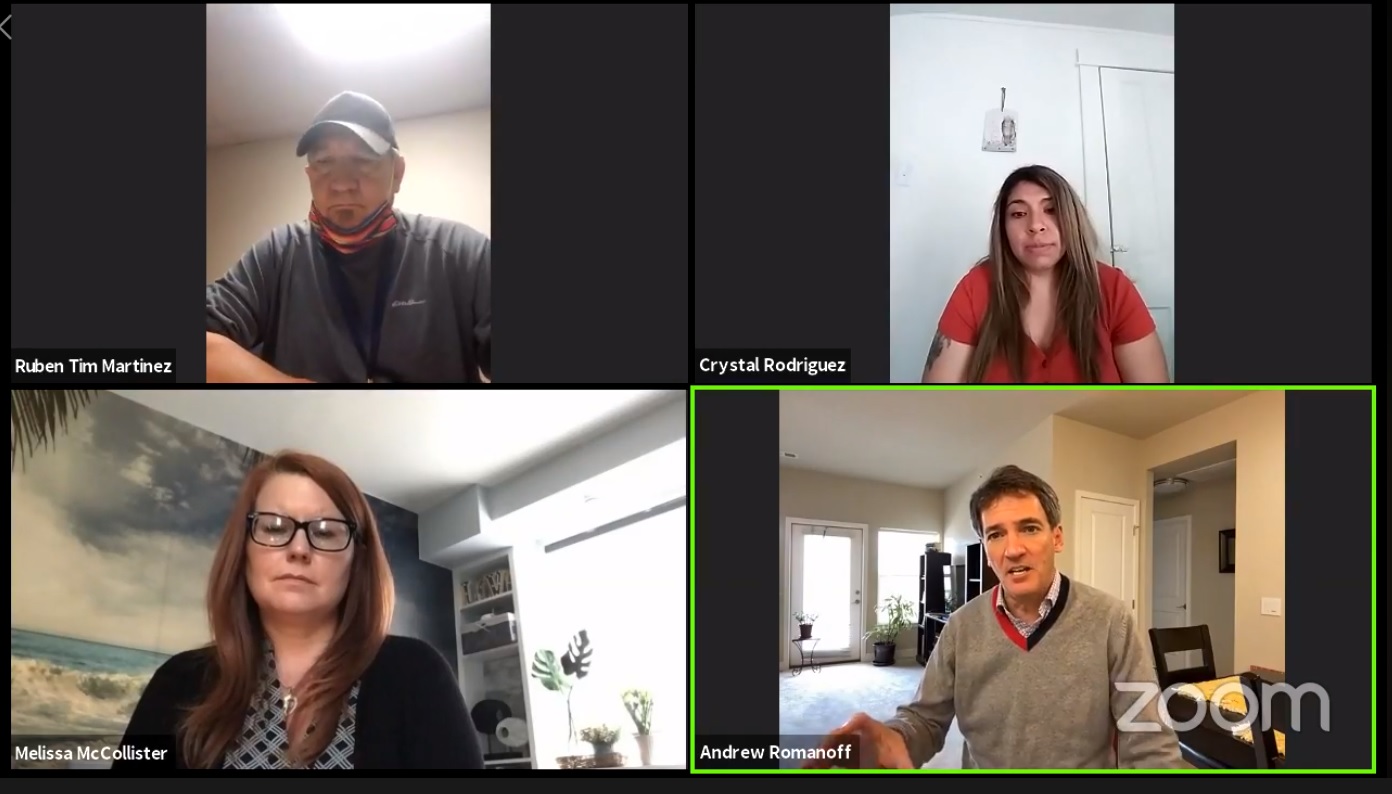
It might be cliché, but shaking hands, knocking on doors and kissing babies really is what candidates who seek office usually do on the campaign trail; it’s an important part of mobilizing the voters they’ll need to win.
These days, those bread-and-butter political activities are impossible violations of social distancing.
Instead, rallies now continue via Zoom, with candidates and supporters sitting at home staring at little squares of faces. Volunteers get trained online and work the phone bank from their living rooms, instead of campaign offices.
In the age of the coronavirus, political campaigns have had to pivot to digital platforms to get their message out and stay relevant, including the state’s most interesting campaign: the U.S. Senate seat.
“It's just a completely different process, and we changed our entire attitude,” said former Gov. John Hickenlooper, one of the Democrats who hopes to challenge Republican Sen. Cory Gardner in the fall.
Transitioning to video town halls and organizing events didn’t come naturally to Hickenlooper. But he’s acclimated — just like everyone else — to the new reality. And he believes it is possible to have some of the same meaningful discussions you’d have as meeting voters face to face.
“People begin to let their guard down and you begin to get back into that kind of more intimate discussion with people about your household finances and the things that really matter to them,” Hickenlooper said.
Veteran Republican political consultant Tyler Sandberg questions whether a virtual campaign can ever “have the same pizzazz or engagement” that comes with in-person events. When someone’s watching a virtual town hall, how much attention are they really paying to it, and is it enough to turn into support for the candidate in November? Sandberg isn’t sure that will happen as often without actual face-to-face time.
Hickenlooper’s main challenger for the Democratic Senate nomination is former Colorado House Speaker Andrew Romanoff. The two will face off in the June primary. Romanoff said one way he’s tried to replicate those personal connections is through text.
“I spend just about every waking hour of every day texting voters,” he said. “I texted about 12,000 people a day. Many of them reply.”
Instead of a campaign stump speech via emojis, Romanoff offers to help connect voters to resources they may need because of the pandemic — whether it be mental health care or navigating the unemployment system.
“It has been a profoundly personal experience. I'm trying to make sure that people can weather this storm,” he explained.
A lot of the candidates currently running for office say that. Challengers have become quasi-social workers, helping where and how they can. Because when it comes down to it, the biggest challenge to reaching voters these days isn’t the technology. It’s interest.
“People just aren’t thinking about politics much right now,” Sandberg said. “They’re really more focused on how they’re going to put food on the table, when they can go back to their job, when can they see their family or friends again.”
To the extent people are following politics, they keep an eye on how leaders respond to the coronavirus pandemic. And that’s something Sanberg believes lends an advantage to incumbents.
“Because when you have these town halls saying ‘How can I help with COVID?’ Well, incumbents actually can help. They can contact different government departments, they can help you navigate the bureaucracy. But a challenger right now, they can’t do anything like that,” he explained.
That’s something Gardner has put into practice.
His Senate race will be the most closely watched race in Colorado and one of the most hotly contested in the country. Gardner campaign manager Casey Contres has worked to figure out how to contact and connect with voters in the virtual space but he said it helps that Gardner is already using these platforms as part of his day job.
“The most important thing…is the senator doing his job as a senator. And I think he's talked about how he's already contacted nearly a million constituents using a lot of these platforms,” Contres said.
Gardner held telephone town halls nearly daily at the start of the pandemic.
Veteran Democratic political strategist Ted Trimpa believes incumbency can cut both ways for voters during a crisis. “Everyone is paying attention because they’re so upset about COVID they want to make sure their voice is heard.”
In this situation, come November, the number of virtual events candidates have held may well matter less than what the Senate does, or doesn’t, achieve around the pandemic.









